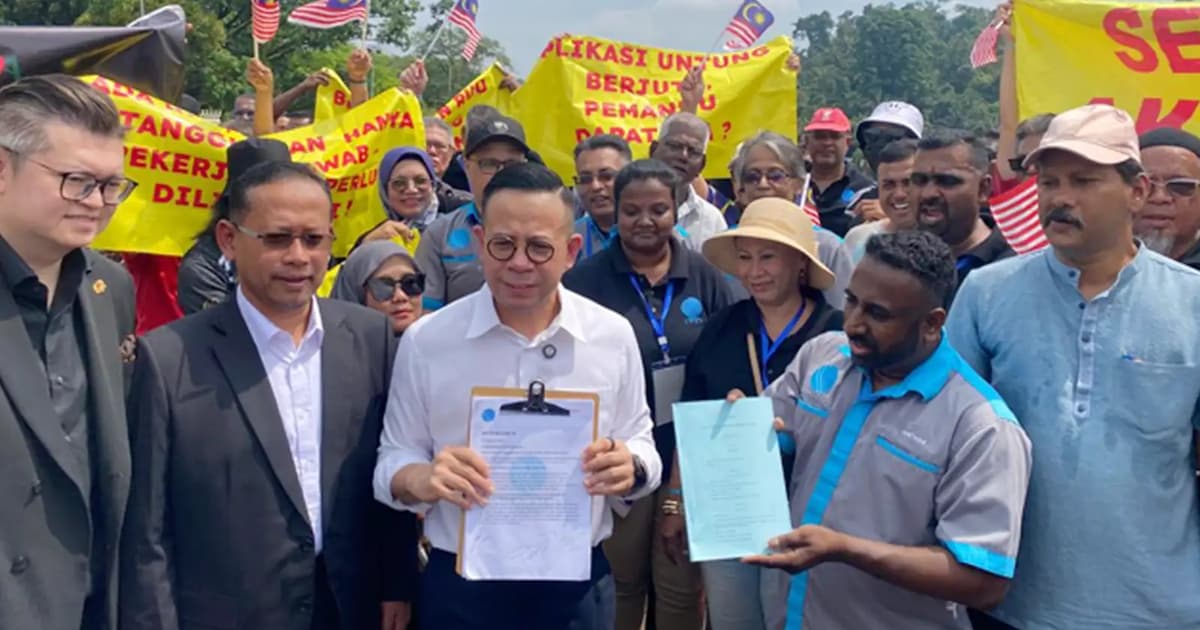
The Land Public Transport Transformation Association today branded MPs who reject the Gig Workers Bill as “traitors”.
Nearly 100 people had gathered outside Parliament to pressure all 222 MPs to support the Gig Workers Bill, with the association’s president, M Nathan, saying it would ensure better protection and fairer pay for gig workers.
“I hope the MPs will not reject this bill. I urge them all to support it so that gig workers can gain freedom and protection.
“At present, there is no law to protect gig workers. Wages are inconsistent, job assignments are unfair. Gig workers can consider anyone who rejects or delays this bill as traitors,” he said after handing over a memorandum to human resources minister Steven Sim.
The memorandum outlined demands such as a price floor for the e-hailing and p-hailing industry, the fair distribution of jobs to drivers, and a review of Grab‘s service payment programme.
The Gig Workers Bill, aimed at providing protection and recognition for workers in the sector, was tabled for its first reading in the Dewan Rakyat on Monday. The second and third readings are scheduled for tomorrow.
Key elements include an official definition of gig workers, setting minimum compensation, establishing a complaints mechanism, and ensuring social security protection through mandatory contributions to Perkeso.
Group calls for greater clarity in bill
The Labour Solidarity and Learning Resources Association said the bill must include a more accurate legal definition of gig workers and guarantee their right to collective bargaining.
It said a gig worker is defined in the bill as an individual who enters into a service contract with a contracting entity or platform provider, which the group said “is not aligned with reality”.
The association said most gig workers operate under the strict control of platforms through algorithmic task assignments, rating systems and unilateral operational conditions.
It also said while the bill allows gig workers to form associations under the Societies Act 1966, it stops short of granting them the right to collective bargaining.
Without legal bargaining power, the associations remain powerless in negotiations with multinational digital platforms that hold overwhelming market dominance, it said.
It also called for gig workers’ associations to be upgraded into proper trade unions under the Trade Unions Act 1959, with full rights to compel collective bargaining and refer disputes to a tribunal if negotiations break down.






